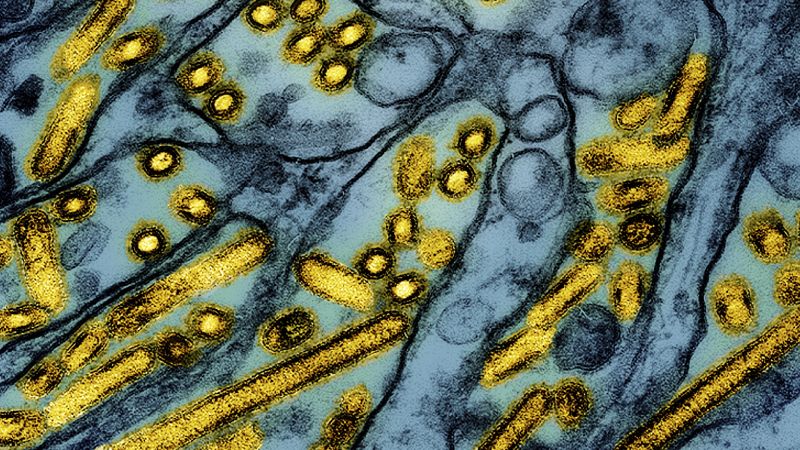CNN
—
A Canadian teenager is hospitalized in critical condition with bird flu, health officials reported Tuesday.
The teen has been receiving care at BC Children’s Hospital in Vancouver since Friday, the same day an initial test came back positive for H5 influenza. Government testing confirmed that the strain is H5N1, the Public Health Agency of Canada said Wednesday.
The young person’s first symptoms, which began a week before they were hospitalized, were conjunctivitis or red eyes, fever and cough, said Dr. Bonnie Henry, an epidemiologist who is the provincial health officer for British Columbia.
The illness has progressed to acute respiratory distress syndrome, or ARDS. People with ARDS typically need help breathing with machines such as a ventilator, but officials did not offer specifics on the teen’s treatment except to say they’re receiving antiviral medications.
This is the first known human case of bird flu acquired in Canada. The country had one case in 2014, which was travel-related, Henry said.
It is still unknown how the teen caught this strain of flu, which has been circulating widely in wild birds, poultry and some mammals, including cattle in North America since 2022.
“Because this is such a rare event and a sentinel event, it is important for us to do as thorough an investigation as possible, and we’re committed to doing that,” Henry said.
There have also been 46 confirmed human infections in the United States as part of the ongoing outbreak this year, mostly among farm workers tending infected animals. All those cases have been mild, and people who have tested positive have recovered from their illnesses after treatment with antiviral medications.
These cases have all been among adults, however, and Henry said it’s possible that the teen’s case is more severe because as a younger person, they’d had less exposure to seasonal strains of the flu, which may offer some degree cross-protection against H5 bird flu strains.
The teen, who was described as healthy before they caught the virus, began experiencing symptoms November 2. They went to an emergency room, were sent home and returned to the hospital a few days later when their condition got worse.
Canadian officials are following more than 40 people who had contact with the teen during their infectious period, which started two days before they began experiencing symptoms.
“I will also say that there are many other tests that are being done on a number of people across the province to try and really get an understanding of what’s happening here,” Henry said.
Officials have no other evidence of anyone else becoming ill after contact with the teen.
“We don’t see right now that there’s a risk of a lot of people being sick,” she said.
More than two dozen poultry farms in British Columbia have been affected by H5N1, Henry said. Since 2022, about 11 million birds have been destroyed, with most of them in British Columbia. Unlike in the US, H5N1 has not been detected dairy cattle or milk in Canada.
“We are looking very, very carefully at all potential animal exposures, bird exposures. There were other pets in the house, and there was contact with pets in other houses,” Henry said. The teen had contact with dogs, cats and reptiles, but none has tested positive for H5N1. Investigators have not identified any contact between the teen and birds.
Get CNN Health’s weekly newsletter
“Right now, we have no specific source identified, but the testing is ongoing in partnerships with our veterinary colleagues, and we’ll be continuing that investigation very thoroughly,” she added.
The US Centers for Disease Control and Prevention says that the current public health risk remains low but that it’s continuing to monitor the outbreak.
“This is a tragic development. It is an unfortunately unsurprising development,” said Dr. Jennifer Nuzzo, who directs the Pandemic Center at the Brown University School of Public Health.
“I think there’s been a lot of wishful thinking about this virus, that it wouldn’t cause people to become severely ill, but that hope, really, I think, stands in contrast to several decades worth of data,” she said.
Since 2003, over 900 human cases of H5N1 have been reported to the World Health Organization. Slightly more than half have been fatal.
“What I think this absolutely underscores is that H5N1 is a very serious public health threat, and we need to be doing more to stay ahead of it, to prevent more people from becoming severely ill or die,” Nuzzo said.

